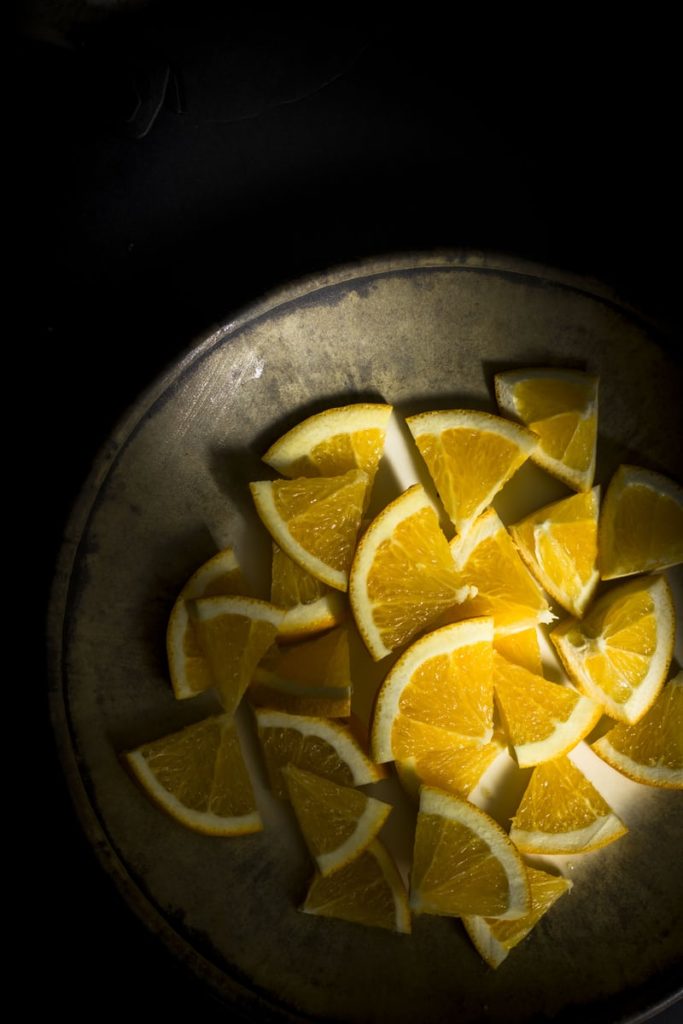Kim Yawitz, RD
You work hard in the gym, so preserving your hard-earned muscle should be a priority! That said, age, nutrient deficiencies, and other factors can put you at risk of losing muscle.
If I were to ask you to name a nutrient that’s important for growing and maintaining muscle, you’d probably say protein (and for good reason–it is important!!). However, a new study published yesterday in the Journal of Nutrition suggests that vitamin C may also help fend off muscle loss, particularly in adults older than 50.
Should You Be Concerned about Losing Muscle?
Did you know that adults start losing muscle at around age 30? Yup, true story.
Muscle loss of up to 5% per decade is common past the age of 30, while adults ages 50-60 can lose up to 2% of their muscle mass per year. This trend only accelerates with increasing age (1).
It’s difficult to know for sure how common age-related sarcopenia (muscle loss) is, but some studies suggest that it impacts nearly one-third of older adults. Other studies suggest the prevalence could be even higher (2).
These age-related changes impact performance in the gym and body composition, of course, but those are the least of your worries if you’re an older adult who’s losing muscle. Age-related sarcopenia is a significant risk factor for frailty, disability, and reduced quality of life.
Pretty dismal, no? Fortunately, there are some lifestyle steps you can take if you want to avoid losing muscle.
Lifestyle Approaches to Preserving Muscle Mass
If you want to have strong muscles, you need to incorporate at least 2-3 good strength training sessions per week.
However, your diet also plays an important role in building and preserving muscle. At a absolute minimum, you need at least 1/2 gram of protein per pound of body weight per day (so, at least 75 grams per day for someone weighing 150 pounds).
(Pssst…here‘s some info on how to reach that goal using foods you like).
I recommend as much as one gram per pound per day for adults who lift heavy, or who are at risk of muscle loss, depending on health history and other factors.
But protein isn’t the only important nutrient for those concerned with losing muscle, which circles us back to this study.
Vitamin C and Muscle
In addition to lifting weights and eating enough protein, you’ll want to be sure you’re getting enough vitamin C in the diet!
Vitamin C–which is found in citrus fruits, tomatoes, red and green bell peppers, broccoli, Brussels sprouts, strawberries, kiwi, and cantaloupe–helps your body defend against atoms called free radicals.
Free radicals are nasty little buggers that cause damage to your cells and tissues, including your muscle tissue. In this way, eating foods in Vitamin C can help preserve your muscles.
In fact, in the aforementioned study (which included more than 13,000 adults ages 42-82), those who ate the most vitamin C had the most muscle mass, while those who ate the least had the least muscle mass.
As is the case with any observational study, we need more evidence to better understand the relationship between vitamin C and muscle mass. However, you could probably stand to add more to your diet.
For one, more than 30% of Americans don’t get enough. Second, vitamin C overdoses are rare and typically result in fairly mild symptoms, including nausea and diarrhea.
Finally, adequate vitamin C intake has been linked with a number of health benefits, including:
- improved cardiovascular health
- lower cholesterol levels
- better iron absorption
- increased production of collagen (which is good for your skin, nails, gut, joints, tendons, ligaments, and other connective tissues).
Have I convinced you yet? Amazing! Pick one fruit and one vegetable from the list of vitamin C-rich foods above, and add a serving of each to your diet every day starting this week. And of course, don’t skip your workouts.
Need a little help building some muscle? We’d love to help! Click here to schedule a free 15-minute consult with us.

